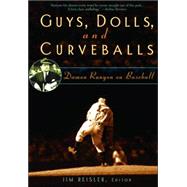Thursday, October 18, 2007
Variable Costing
A bunch of us at work were at a meeting where we were introduced to the Evil World of Variable (or Marginal Cost) Pricing. The initial shock of listening to this topic as expounded by a company accountant (Gwynne!?!? How do you deal with this stuff on a daily basis?) did not result in deep hibernation as expected (shock, accountant, hibernation usually are not words one usually associated to be found in one sentence). The bean counter (Yes, I know that it’s an irritating descriptive to be hung with) had come up with a subtle plan on presenting his topic.
Radiohead. Well, Radiohead and their latest album release payment policy. Those of us musically inclined lent him our ears.
"In Rainbows" is, as most every music fan and Wall Street Journal reader out there knows, is being sold as a You Determine the Price release. At Radiohead.com, you go to the DOWNLOAD option and put in the price you’re willing to pay. $0.00 is allowable, as is $100.00. I didn’t try $1 million, in case my finger slipped and locked in the order. Negative amounts are not accepted; come on people, Radiohead is not going to pay you to be listening to their music.
The accountant started off by complementing the band on the size of their financial cojones as they were taking a shaky bet on the behavior of the human animal. Note Bene: I use cojones here in complete comfort since a former Secretary of State, Madeline Albright, deemed it possible to be speaking in public of such anatomical admiration. He noted that the bandied around term of Variable Pricing in regards to the album purchase was basically incorrect. At the least, it was misleading. While different sources out there (reliability is not being discussed here) provide definitions more fitting for the term Bid Pricing, our plucky accountant noted that most of these definitions miss out on the most important component. The cost. From there, he wended his way through the archaicity of accounting terms such as contribution margin costing, marginal value costing until he arrived at the door leading to Evil World of Variable (or Marginal Cost) Pricing.
This world sounded way too much like that physics world of Zeno’s Paradox, a place (and time) I was not interested in revisiting. Zeno’s Paradox was the nail-in-the-coffin for my career path in Physics, a very short career path, I'll add. According to that ingenious juggler Zeno of Elea, you cover half the distance between two points, over and over again, but you never get to that last point because the halving of the distance always gives you another distance to halve. Funny how my Physics teacher in high school was not able to explain how I was able to walk out of that class if I was continually covering half of the distance from my chair to the door.
Much the same with the Evil World of Variable Costing. A good or service is composed of 2 costs, fixed and variable. Whether we sell zero or a million of these goods or services, we have a fixed cost, say like rent, coffee, or Twinkies that we have to pay for. If we sell everything based on our Variable Cost, we are not paying for our rent, coffee, or those darn fattening Twinkies. We’d be selling ourselves into bankruptcy. And yet, as the accountant nudge-nudge-wink-winked, some companies’ purposely did this to maximize their sales. Not us, as our future seems quite bright, but some folks out there are unknowingly operating under Zeno’s Paradox of Accounting. (Gwynne? Ever come across this?)
Tying it all up, our accountant admitted that he was left paff as to how the financial folks involved with Radiohead came up with their "You Set the Price" scheme as cost of any sort never seemed to enter the calculation. He thought that at least a minimum price needed to be set. This faith in the Common Man that Radiohead seemed to be espousing was not in his Accounting Bible.
An interesting "What If?" music commentary on variable pricing is here. Economic Theory meets the Wallet of Reality.
Radiohead. Well, Radiohead and their latest album release payment policy. Those of us musically inclined lent him our ears.
"In Rainbows" is, as most every music fan and Wall Street Journal reader out there knows, is being sold as a You Determine the Price release. At Radiohead.com, you go to the DOWNLOAD option and put in the price you’re willing to pay. $0.00 is allowable, as is $100.00. I didn’t try $1 million, in case my finger slipped and locked in the order. Negative amounts are not accepted; come on people, Radiohead is not going to pay you to be listening to their music.
The accountant started off by complementing the band on the size of their financial cojones as they were taking a shaky bet on the behavior of the human animal. Note Bene: I use cojones here in complete comfort since a former Secretary of State, Madeline Albright, deemed it possible to be speaking in public of such anatomical admiration. He noted that the bandied around term of Variable Pricing in regards to the album purchase was basically incorrect. At the least, it was misleading. While different sources out there (reliability is not being discussed here) provide definitions more fitting for the term Bid Pricing, our plucky accountant noted that most of these definitions miss out on the most important component. The cost. From there, he wended his way through the archaicity of accounting terms such as contribution margin costing, marginal value costing until he arrived at the door leading to Evil World of Variable (or Marginal Cost) Pricing.
This world sounded way too much like that physics world of Zeno’s Paradox, a place (and time) I was not interested in revisiting. Zeno’s Paradox was the nail-in-the-coffin for my career path in Physics, a very short career path, I'll add. According to that ingenious juggler Zeno of Elea, you cover half the distance between two points, over and over again, but you never get to that last point because the halving of the distance always gives you another distance to halve. Funny how my Physics teacher in high school was not able to explain how I was able to walk out of that class if I was continually covering half of the distance from my chair to the door.
Much the same with the Evil World of Variable Costing. A good or service is composed of 2 costs, fixed and variable. Whether we sell zero or a million of these goods or services, we have a fixed cost, say like rent, coffee, or Twinkies that we have to pay for. If we sell everything based on our Variable Cost, we are not paying for our rent, coffee, or those darn fattening Twinkies. We’d be selling ourselves into bankruptcy. And yet, as the accountant nudge-nudge-wink-winked, some companies’ purposely did this to maximize their sales. Not us, as our future seems quite bright, but some folks out there are unknowingly operating under Zeno’s Paradox of Accounting. (Gwynne? Ever come across this?)
Tying it all up, our accountant admitted that he was left paff as to how the financial folks involved with Radiohead came up with their "You Set the Price" scheme as cost of any sort never seemed to enter the calculation. He thought that at least a minimum price needed to be set. This faith in the Common Man that Radiohead seemed to be espousing was not in his Accounting Bible.
An interesting "What If?" music commentary on variable pricing is here. Economic Theory meets the Wallet of Reality.
Labels: Educational, Effluvia, Quirks
Comments:
<< Home Verging on Pertinence Just some more disposable thoughts clogging up the hinterlands
"Ever come across this?"
Heh. You lost me at the word "costing." I am strictly now a tax accountant and you won't find me making distinctions between fixed and variable costs when deciding whether or not we can deduct them. But the very fact that the accountant managed to fit the music industry into the discussion is impressive, by accountant measurement standards. ;-)
Heh. You lost me at the word "costing." I am strictly now a tax accountant and you won't find me making distinctions between fixed and variable costs when deciding whether or not we can deduct them. But the very fact that the accountant managed to fit the music industry into the discussion is impressive, by accountant measurement standards. ;-)
Gwynne,
Not that I'm a masochist, but the cost accounting stuff seemed much less painful and certainly less prone to the whims of change than tax accounting.
If I were to beat myself with the cat'o nine tails of either branch of accounting, I'd assume the cost accounting one's to be the of the lesser sting.
So, are you a masochist?
Not that I'm a masochist, but the cost accounting stuff seemed much less painful and certainly less prone to the whims of change than tax accounting.
If I were to beat myself with the cat'o nine tails of either branch of accounting, I'd assume the cost accounting one's to be the of the lesser sting.
So, are you a masochist?
"Variable costing" is a gimmick (or "experiment," if you prefer) only Radiohead and one or two other bands could pull off. As it stands right now there are a million singer-songwriters who have been doing variable costing since the day MySpace opened up, and if they've still got a pot to piss in do it's because they'll perform in any coffee house or pub that'll have 'em. Radiohead gets the publicity for this stunt, and will probably generate a half-decent income from it as well, because they're one of the last bands to benefit from the Big Studio scheme. They fill arenas because they sold a bazillion copies of Pablo Honey because "Creep" was on every big radio station, filling in between "Smells Like Teen Spirit" and "Loser" -- all three of these being big, pre-Napster hits. I'll be curious to see if anyone can get that big again.
Post a Comment
<< Home Verging on Pertinence Just some more disposable thoughts clogging up the hinterlands

















